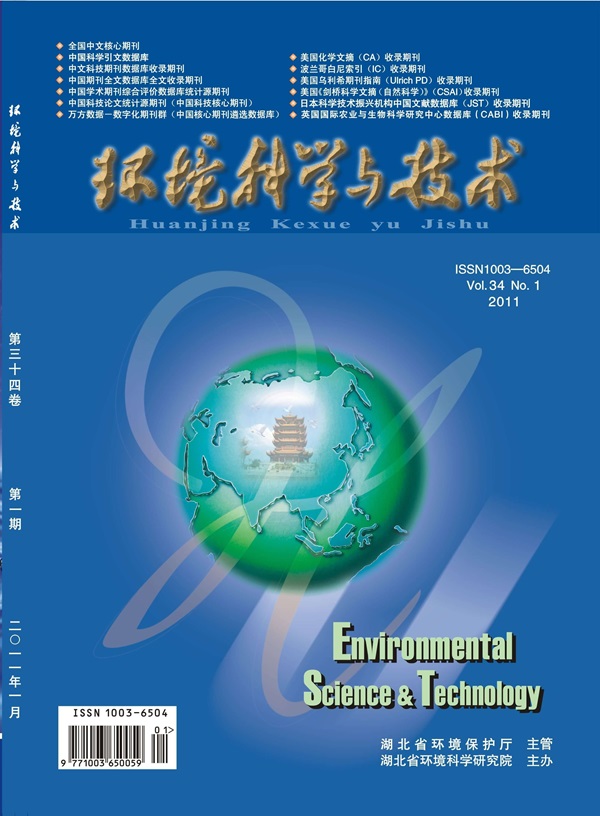通过钛基预混凝轻度调节微生物栖息地减轻反渗透膜污染。
IF 10.8
1区 环境科学与生态学
Q1 ENGINEERING, ENVIRONMENTAL
引用次数: 0
摘要
膜污染一直是反渗透(RO)系统面临的挑战。设计有效的策略来减轻膜污染已经成为可持续水处理的关键。在这里,我们提出了一种基于钛的预混凝策略,通过调节RO饲料中的微生物栖息地来缓解RO污染。系统研究了Ti(SO4)2对脱硫废水的预混凝性能及后续反渗透污染机理。我们的研究结果表明,Ti预混凝诱导了酸化环境,保持了有机和无机沉积之间的平衡,并培养了一个抵抗快速污染的有益微生物群落。不同预凝条件下(Ti、Al和Ctrl)的20 d反渗透操作表明,Ti组膜保持最高的归一化通量为57.15%,分别比Ctrl组和Al组高7.92%和15.16%。微生物群落分析,包括分类分析和宏基因组分析,表明基于ti的预凝降低了细胞外聚合物(EPS)分泌属的优势地位,如Sphingopyxis,同时促进了具有耐酸特性的Terrimonas和Paenarthrobacter,减少了EPS的产生。这种转变通过增强微生物平衡和限制生物膜的形成来减轻生物污染。这些结果强调了基于Ti预混凝的微生物栖息地调整策略在提高RO系统可持续性方面的潜力,为改善工业废水处理提供了实用的解决方案。本文章由计算机程序翻译,如有差异,请以英文原文为准。
Mild Tuning of the Microbial Habitat via Titanium-Based Pre-coagulation Mitigates Reverse Osmosis Membrane Fouling.
Membrane fouling remains a persistent challenge in reverse osmosis (RO) systems. Devising effective strategies to mitigate membrane fouling has become crucial for sustainable water treatment. Here, we propose a titanium-based pre-coagulation strategy for RO fouling mitigation through regulation of the microbial habitat in RO feed. The pre-coagulation performance of Ti(SO4)2 for desulfurization wastewater and the subsequent RO fouling mechanism were systematically investigated. Our findings revealed that the Ti pre-coagulation induced an acidized environment, maintained a balance between organic and inorganic depositions, and fostered a beneficial microbial community that resisted rapid fouling. The 20 day RO operations in different pre-coagulation scenarios (Ti, Al, and Ctrl) showed that the Ti group membranes maintained the highest normalized flux at 57.15%, outperforming the Ctrl and Al groups by 7.92% and 15.16%, respectively. Microbial community analyses, including taxonomic profiling and metagenomic analysis, demonstrated that Ti-based pre-coagulation reduced the dominance of extracellular polymeric substance (EPS)-secreting genera, such as Sphingopyxis, while promoting Terrimonas and Paenarthrobacter, with acid-tolerance traits and reduced EPS production. This shift mitigated biofouling by enhancing microbial balance and limiting biofilm formation. These results underscored the potential of the Ti pre-coagulation-based microbial habitat tuning strategy in enhancing RO system sustainability, offering a practical solution for improving industrial wastewater treatment.
求助全文
通过发布文献求助,成功后即可免费获取论文全文。
去求助
来源期刊

环境科学与技术
环境科学-工程:环境
CiteScore
17.50
自引率
9.60%
发文量
12359
审稿时长
2.8 months
期刊介绍:
Environmental Science & Technology (ES&T) is a co-sponsored academic and technical magazine by the Hubei Provincial Environmental Protection Bureau and the Hubei Provincial Academy of Environmental Sciences.
Environmental Science & Technology (ES&T) holds the status of Chinese core journals, scientific papers source journals of China, Chinese Science Citation Database source journals, and Chinese Academic Journal Comprehensive Evaluation Database source journals. This publication focuses on the academic field of environmental protection, featuring articles related to environmental protection and technical advancements.
 求助内容:
求助内容: 应助结果提醒方式:
应助结果提醒方式:


